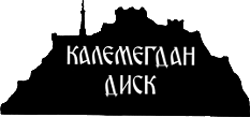Information
Shop
Suche
Katalog
- Empfehlungen
- Demnächst
- Was ist neu?
- Wieder im Bestand
- ABC-Listen CDs
- ABC-Listen LPs
- Komplettliste CDs
- Komplettliste LPs
Bestellung

Dalriada
Napisten hava
- Tonträger: CD
- Gruppe: Dalriada
- Titel: Napisten hava
- Land der Gruppe: HU
- Stil: Folk Metal, male & female vocals
- Rating: 4
- Erscheinungsjahr: 2012
- Aufnahmejahr: 2012
- Produktionsjahr: 2012
- Plattenfirma: Nail Records
- Artikelnummer: NAILCD 193
- Farbe des Labels:
- Ausgabe:
- Extras: digipak
- EAN: 5999505137456
- Gewicht: 64 g
- Optisch: new
- Akustisch:
- Cover: new
Rock Diszkont Release Information
Hungary’s most popular and well-known folk metal band with soaring male and gracious female vocals, epic choirs and perfect balance between folk and metal instrumentation.
Dalriada (formerly Echo of Dalriada) has been a Hungarian folk metal band. Its predecessor Steelium was formed in 1998 in Sopron and had been renamed into Echo of Dalriada in February 2003. This name was shortened to Dalriada with their third album “Kikelet” in 2007.
The band’s seventh studio album “Napisten hava” (Sun God’s Eve) was released in early October 2012.
Dalriada has produced the strongest album of its career, with signs of renewal and a richly detailed elaboration, and its main strength is its greater than ever awareness of the fusion and unification of folk elements and metal music. The epic of “Napisten hava” is a sound of its own which, in contrast to the “dance-house” sound, not only suits the band much better, but which, because of its uniqueness, is the one that should really attract the attention of the European field.
A few weeks before the release of “A dudás” (The Bagpipes), which debuted a few weeks before the release, the band also produced an amazingly well put together video, which also thematised the fun (or rather, wild as hell) party in visual terms, and which, in addition to the very high brain-death factor of the band and the crew, showed a marked reduction in the distance between folk and metal music, while still making extremely strong use of elements of folk, and a consciousness. In other words, this was no longer a case of two genres being piled on top of each other, but of a fusion, a closer fusion, which is in itself a huge step forward.
However, the “chorus of dudás” is not at all indicative of the album as a whole, because although some songs like “Napom, fényes napom” (My Sun, My Bright Sun) or “Borivók éneke” (The Song of the Badgers) clearly carry on the more up-tempo and cheerful line of “Promise”, contrary to previous speculation, the ballad-like quality predominates on “Napisten hava” (Sun God’s Eve). The epic tone, which has always been one of the band’s greatest strengths, is made more monumental by the even more prominent and very thoughtfully applied folk elements, while the aforementioned (or rather missing) balance is never upset.
These virtues are combined in a very impressive way in the atmospherically different, but structurally almost similar “Tündérkert” (Fairy Garden), “Napisten hava” (Sun God’s Eve) and “Julianus útja” (Julian’s Way): in addition to the basic motifs rooted in folklore, the second half of the songs feature more traditional metal themes, with occasional heavy guitar and keyboard solos (which only seem stylistically odd at first listen), and are concluded by the return of the opening melody. Of course, there is nothing within the individual sections that we haven’t heard on previous albums, the difference being in the detail and the effort to maintain unity.
Musically, it brings nothing new, yet it stands out as one of the most epic Dalriada songs ever written, the heroic melancholy of “Hunyadi és kapisztrán Nándorfehérvári diadaláról” (Hunyadi and Kapistrán on the Triumph on Kalemegdan) (assuming such a thing exists) more than a hit. The absolute highlight, however, is “Hírhozó” (Newswire), also in the ballad-epic category, with its captivating melodies flowing into a somewhat unusual, bitterly hit, good kind of peasant-hard rock/stoner riff in the middle section, which could only have been covered by a real (not imitated) Hammond carpet.
As for Dalriada’s albums, Laura Binder’s voice stands out, this time there is no problem on that front either, thankfully no sign of spasm or insecurity. The vocal themes are shared roughly equally, alternating and complementing each other, with András Ficzek, who has one of the best and strongest organs on the Hungarian metal scene, and who takes the lead in the ominous “A juhászlegény balladája” (Ballad of the shepherd boy), which is also a speciality, and the Dalriada standard “Puszta föld” (Puszta land).
The album again features the popular Hungarian folk music band Fajkusz Banda, who also regularly perform in concerts with Dalriada.
Line-up:
Laura Binder: vocals
András Ficzek: guitar, vocals
Mátyás Németh-Szabó: lead guitar
Barnabás Ungár: keyboards
István Molnár: bass guitar
Tadeusz Rieckmann: drums
Tracklist
1. Intro (Egy csárdás Csíkból) 1:10
2. A dudás 5:34
3. Tündérkert 5:41
4. Napom, fényes napom 5:04
5. Napisten hava 6:44
6. Julianus útja 5:39
7. Puszta föld 5:45
8. Hunyadi és Kapisztrán Nándorfehérvári diadaláról (Saltarello) 5:32
9. Hírhozó 6:37
10. Borivók éneke 4:33
11. A juhászlegény balladája 5:55
12. Outro (Lassú magyaros Gyimesből) 1:07
13. A dudás (video) 5:32


